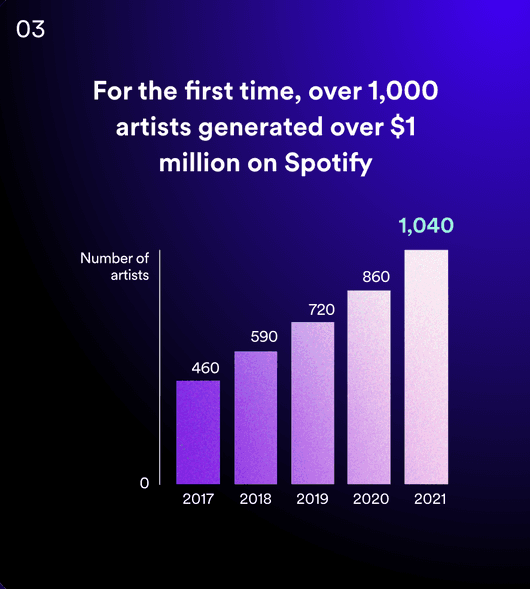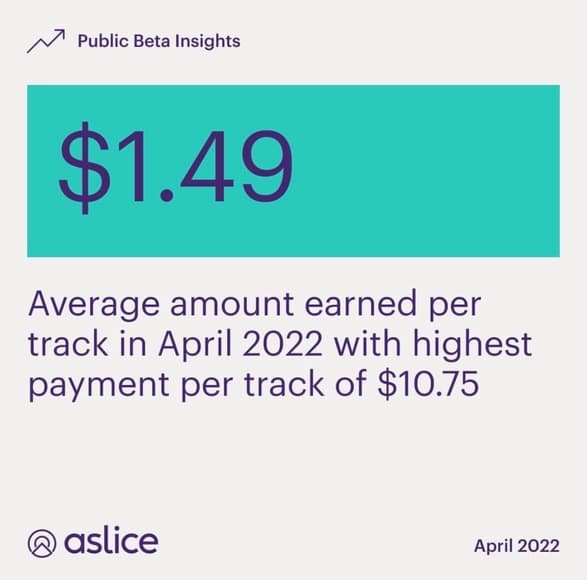AT THIS YEAR’S AMSTERDAM DANCE EVENT (ADE) WE LOOKED INTO HOW MUCH ARTISTS GET PAID FROM MUSIC STREAMING.
Long gone are the days of buying new tunes and like many others, I consume music by subscribing to streaming services like Spotify, Apple Music or Tidal.
I asked several artists at ADE whether they could earn a living off streaming alone.
All told us that they aren't paid enough.
It has been an open secret that streams do not translate to much money for artists, songwriters and composers.
92% of musicians and music creators told the Musicians' Union that streaming amounts to less than 5% of their income.
This is because the money streaming services payout has to be divided among many parties, including distributors, record labels and artists themselves.
CRUNCHING THE STREAMING NUMBERS
The UK government investigated the economics of music streaming following the Covid pandemic, when musicians couldn’t make money from touring.
This report found that...
“Music streaming in the UK brings in more than £1 billion in revenue with 114 billion music streams last year, however artists can be paid as little as 13% of the income generated”
We were told that for most artists, streaming does not generate enough income to live off.
Techno producer DVS1 (we’ll be coming back to him later) had this to say…
Spotify said that 1,040 artists generated over $1 million last year. Doing the maths from the UK govt report, that means that there are at least 1,040 artists earning over $130,000 from streaming on Spotify.

Credit: Loud and Clear by Spotify
So, it seems that DVS1 was a bit off with his figures.
But it is true that only the most successful artists can generate a considerable income from streaming.
This means that smaller artists have to find other sources of income to earn a living.
PEGGY GOU AND ASLICE, A POSITIVE INITIATIVE BY DVS1
At ADE we went to see the Peggy Gou interview hosted by Resident Advisor. I asked Peggy what she thought could be done to pay artists more for their music.
The system Peggy Gou spoke about is called Aslice, a service set up by DVS1, which allows DJs to pay artists directly after playing their music.
Aslice is completely voluntary and is a system tailor-made to DJs, recommending that they give 5% of their performance fee.
So if a DJ get's paid £1000 for a gig, Aslice suggests they pay artists £50 for playing their music.
Even though it is voluntary, DVS1 claims that many DJs are eager to sign up and support underground artists.

Credit: @asliceofficial : Instagram
While Aslice is a creative way to get artists paid more, it is limited in how much it can payout because it focuses on the market of publicly played music.
Aslice has not yet released figures on how much it has paid artists, but it is unlikely that they could rival the billions generated by music streaming.
WHAT NEEDS TO CHANGE?
DVS1 claims that streaming services have not tried to find a way to pay artists more beyond the current set-up.
Credit: @asliceofficial : Instagram
Spotify, which is the largest streaming platform, takes approximately ⅓ of the money paid in by subscriptions and ad-revenue, giving around ⅔ to rights holders to divide up between the relevant parties.
We reached out to Spotify for a comment but we are yet to hear back from them.
You can find out more about how much Spotify pays out on their Loud and Clear website.
Dave Clarke suggested one potential solution for a more equitable deal for artists...
Dave added that other governments outside the EU would have to adopt similar policies on streaming payments for it to be fair across the board.
It's not clear that such a policy on equitable royalties payments is likely to come into effect soon.
The UK government report recommends that a policy on equitable royalties should be created now, but it is yet to be made law.
You can follow the UK Musicians' Union campaign to "fix streaming and keep music alive" here which details how you can support their efforts to change UK law.